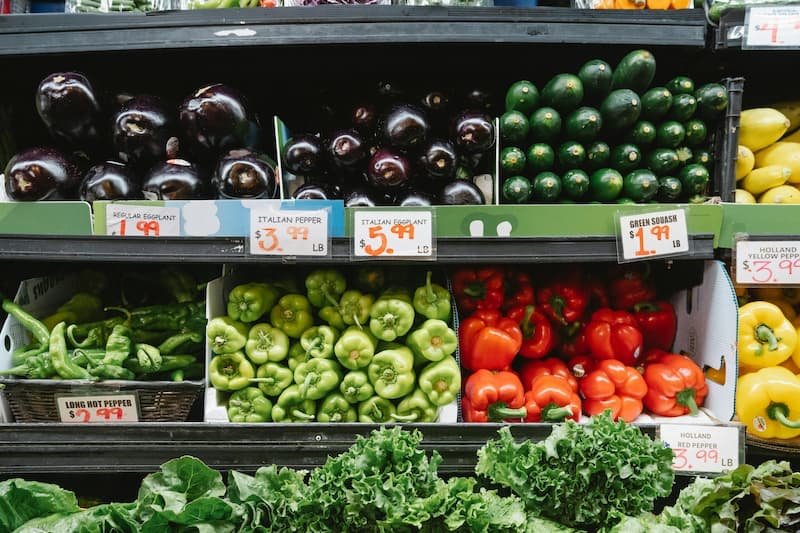
 Olivia Møller
Freediver - Activist - Explorer
Olivia Møller
Freediver - Activist - Explorer

 Olivia Møller
Freediver - Activist - Explorer
Olivia Møller
Freediver - Activist - Explorer
We live in an age of unparalleled convenience. Supermarkets brim with colorful packages, fast food joints sit on every corner, and the promise of a quick, satisfying meal is always within reach. But beneath this glossy, hyper-processed veneer lies an unsettling truth: our food is killing us.
It's not just the occasional indulgence in a greasy burger or a sugary soda; it's the daily consumption of highly processed, chemically-laden, and nutrient-deficient food that is wreaking havoc on our health. Chronic diseases like obesity, diabetes, heart disease, and even cancer are on the rise, and much of the blame falls squarely on what we put on our plates.
The modern food industry is a labyrinth of synthetic additives, preservatives, and chemicals designed to enhance flavor, extend shelf life, and keep costs low. But these additives come at a steep price—our health.
Pesticides and Herbicides: Glyphosate, a common herbicide found in products like Roundup, has been linked to a host of health problems, including cancer. Despite mounting evidence of its dangers, traces of glyphosate are found in everything from breakfast cereals to vegetables. The chemical disrupts our gut microbiome, weakens our immune system, and contributes to chronic inflammation. Pesticide exposure has also been associated with neurological disorders, hormonal imbalances, and reproductive issues. Long-term exposure, even in small doses, can accumulate in the body, leading to chronic health conditions that may take years to manifest.
Ultra-Processed Ingredients: Processed foods are loaded with artificial colors, flavors, and preservatives that our bodies are not equipped to handle. Studies have shown that frequent consumption of ultra-processed foods is associated with an increased risk of heart disease, obesity, and even cognitive decline. These foods are designed to be addictive, hijacking our natural satiety cues and leaving us craving more. Ingredients such as artificial sweeteners, emulsifiers, and hydrogenated oils can alter gut bacteria, disrupt metabolic processes, and contribute to systemic inflammation.
Sugar Overload: Sugar is everywhere, hidden under different names such as high-fructose corn syrup, cane sugar, and maltodextrin. Excessive sugar intake has been directly linked to the obesity epidemic, insulin resistance, and type 2 diabetes. More alarmingly, sugar fuels inflammation, which is a major contributor to chronic diseases. The overconsumption of sugar affects brain function, leading to mood swings, brain fog, and even depression. Additionally, sugar addiction drives the cycle of constant cravings and overconsumption, making it difficult for individuals to break free from unhealthy eating patterns.
The Deceptive Nature of 'Health' Foods: Many so-called 'healthy' foods are anything but. Products marketed as low-fat, sugar-free, or natural often contain artificial additives, excessive sodium, and harmful fillers. Processed protein bars, flavored yogurts, and diet drinks can contain synthetic sweeteners and chemical preservatives that may have adverse effects on the body's hormonal balance and digestive system. Consumers are misled by clever marketing tactics that mask the true nutritional content of these products.

The numbers are staggering. According to the World Health Organization, non-communicable diseases (NCDs) such as cardiovascular diseases, diabetes, and cancer account for 71% of all deaths globally. A significant factor in this trend is poor diet.
Obesity Epidemic: Processed foods are engineered to be hyper-palatable and calorie-dense, leading to overeating and weight gain. Over 42% of Americans are classified as obese, and the numbers continue to climb globally. This excess weight puts people at higher risk for hypertension, stroke, and metabolic disorders. Obesity is not just a matter of aesthetics; it directly impacts the body's ability to regulate hormones, metabolize nutrients, and maintain cardiovascular health.
Diabetes Tsunami: Type 2 diabetes was once considered a disease of the elderly. Today, it's affecting younger populations at an alarming rate. The overconsumption of refined carbohydrates and sugary drinks has led to a spike in insulin resistance, setting the stage for a lifetime of health complications. Diabetes increases the risk of nerve damage, kidney failure, and even blindness, severely impacting quality of life.
Heart Disease: Processed foods laden with trans fats, refined sugars, and excessive sodium contribute to high blood pressure, clogged arteries, and ultimately, heart disease—the leading cause of death worldwide. The consumption of unhealthy fats and artificial ingredients alters lipid profiles, increases inflammation, and leads to arterial plaque buildup, elevating the risk of heart attacks and strokes.
Cognitive Decline: Recent research links processed foods to cognitive decline and neurodegenerative disorders such as Alzheimer's disease. Poor nutrition affects brain function by promoting oxidative stress and neuroinflammation. Diets rich in antioxidants, healthy fats, and whole foods are critical for maintaining cognitive health and preventing age-related decline.

The food industry is a powerful machine, driven by profit rather than public health. Multinational corporations spend billions lobbying against regulations that would force transparency, reduce harmful ingredients, and promote healthier alternatives. They have mastered the art of marketing, convincing us that processed snacks labeled as "organic" or "natural" are somehow good for us.
Meanwhile, healthier, whole foods remain financially out of reach for many. The cheapest foods available tend to be the unhealthiest, disproportionately affecting low-income communities and fueling health disparities. Food deserts, where access to fresh produce is limited, exacerbate the problem, making processed and fast foods the default option for many families.

Awareness is the first step. Once we understand how our food system is failing us, we can take control of our choices. Here are actionable steps to reclaim our health:
Eat Whole Foods: Prioritize fresh, whole foods like fruits, vegetables, nuts, seeds, and lean proteins. These foods provide essential nutrients without harmful additives.
Read Labels: If an ingredient list reads like a science experiment, it's best to avoid it. Opt for products with minimal, recognizable ingredients. Learning to decode ingredient lists and recognize harmful additives can empower consumers to make informed decisions.
Cook at Home: Preparing meals at home allows you to control what goes into your food and helps you avoid the hidden dangers lurking in processed options. Cooking from scratch using whole ingredients ensures better nutrition and helps avoid exposure to harmful chemicals.
Support Sustainable Agriculture: Choose organic and locally sourced foods whenever possible. Supporting small farmers and ethical brands helps shift the market away from industrialized, chemical-heavy food production. Investing in sustainable food choices not only benefits personal health but also supports environmental conservation.
Educate Yourself and Others: Knowledge is power. Share information with friends and family, and advocate for better food policies in your community. Raising awareness about the dangers of processed foods can create a collective demand for healthier options.
Reduce Processed Food Consumption: Start by cutting down on processed foods gradually and replacing them with whole, nutrient-dense alternatives. Small changes can lead to long-term improvements in health and well-being.
Be Skeptical of Marketing Claims: Don't fall for misleading labels. Conduct research on food brands and their sourcing practices to ensure transparency and authenticity.

The truth is harsh but unavoidable: our food system is broken. The convenience of modern food comes at a heavy cost to our health, and unless we make conscious, informed choices, the cycle of disease and poor nutrition will continue. It's time to rethink our relationship with food, demand better from the industry, and prioritize long-term well-being over short-term convenience. Our food should nourish us, not poison us. It's up to us to take back control—one meal at a time.